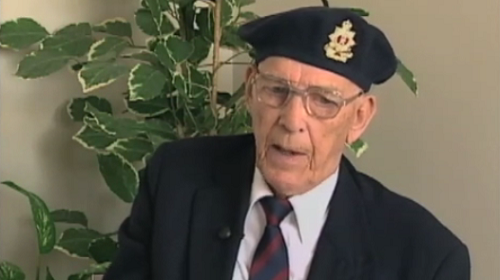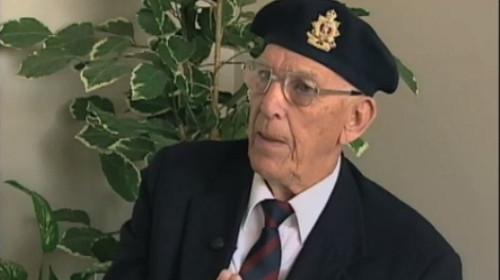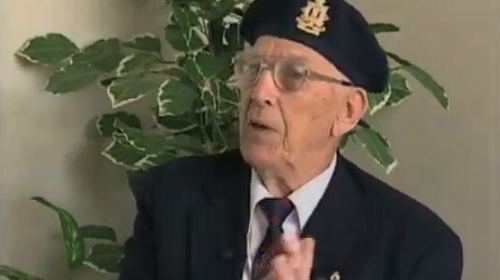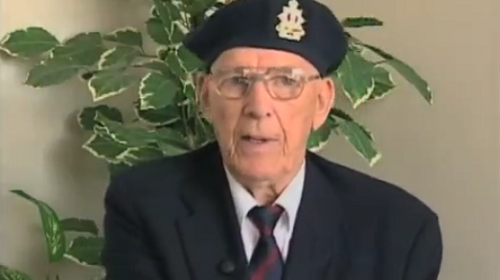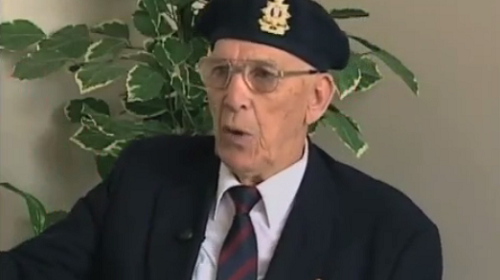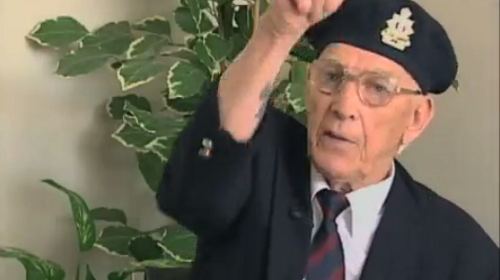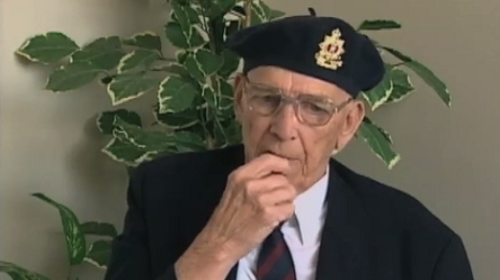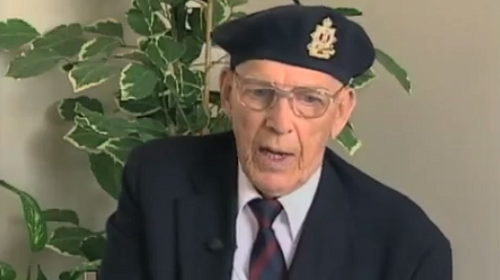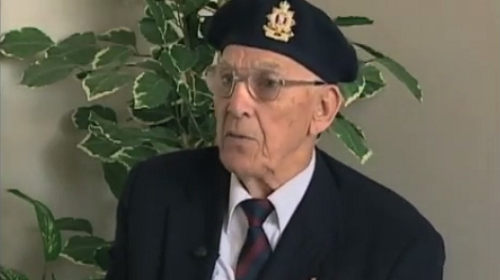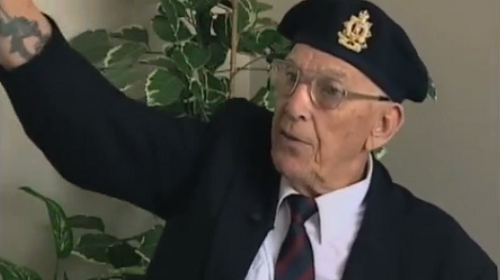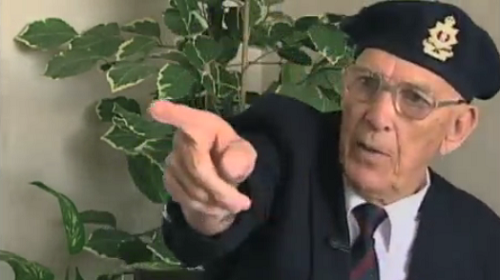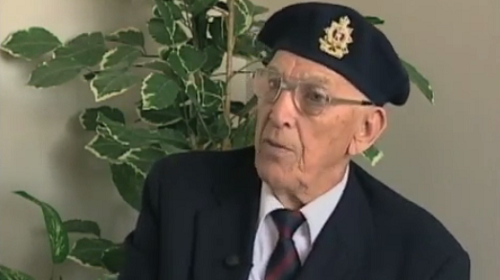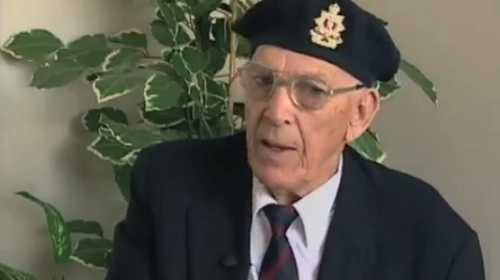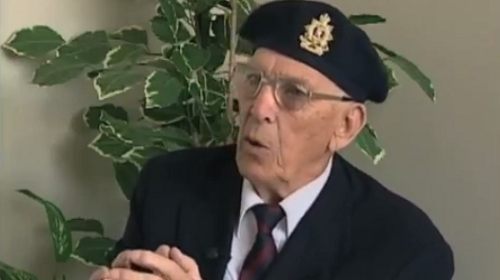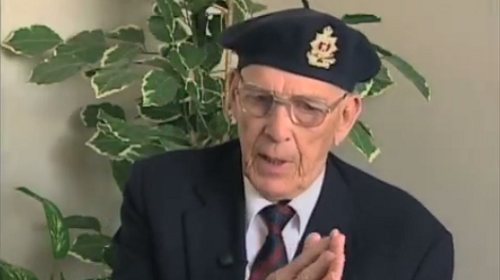From Ship to Train
Heroes Remember
From Ship to Train
Transcript
The news came on from Germany, and Lord Haw Haw with his English
accent, said that the Royal Regiment would be leaving shortly
for England and they'd be sunk on the way.
And those words I heard with these ears.
Now, where did he, where did he get the news?
Where did he get the news?
Anyway, we made it safely. We made it safely.
The St Empress of Australia.
Interviewer: Where did you land?
We landed, we went up the Clyde River, and I'm telling ya,
going up Clyde I was, I was standing beside a Scotsmen
by the name of Tom Grant, Thomas Grant who was a bit of
a chum of mine. He was older though. He was an older man.
And he used to work at Sunnybrook Hospital.
I used to see him every time I went to Sunnybrook Hospital.
And he said, “Poolton,” with his Scottish accent, “you see that house a way
over there,” he said, “I was born there.” Beautiful, beautiful
sunny day going up the Clyde River, battleships all over, you know
all big ones and cruisers, I didn't know one from the other then.
And destroyers, didn't know what a destroyer was,
didn't know what a, you know, one from the other.
And all up the Clyde, we landed at Gourock and we used the tender again.
We had to unload on a tender and they took us in and put us right
on trains for Aldershot. We didn't really see much of Scotland.
And the first stop was Carlisle. And I've never forgot Carlisle
because this is the first time we heard the women with their
English accents and that was the northern part of England.
So they had tea and sandwiches out on the station platform.
And we were packed in, we were packed in, you know
and we had all our gear, we had our duffel bags and our big packs and our rifles
and Bren guns and everything we had, you know, on this train.
So we had refreshments and then the train carried on all night.
The train ran all night and we reached Aldershot that morning
maybe eight, seven, I don't know what and they had two pipe
bands from the 2nd Division; the Essex Scottish and the Black
Watch there to meet us. So we'd shaved, we done everything in
our mess tins, washed and shaved and when we got off the train,
we were clean and shaved and we'd come over from Iceland off the
boat trip and the whole bit and they marched us up to Mandoro Barracks.
And it was like just like heaven, landing in Aldershot, you know,
we didn't know what Aldershot was, we had no idea,
spit n' polish, you know, and all this stuff.
And the Mandora Barracks had running water, hot and cold.
We had a mess hall, a great big mess hall, where we sat down to eat.
In Iceland you walked around with your mess tins, squatting down,
the wind would blow the tea right out of your mess tin
before you got to your tent or wherever you were. Unbelievable.
Just unbelievable. And no mud, you know, parade grounds.
Description
Destined for England, Mr. Poolton describes the exceptional treatment given to his regiment on their journey to Aldershot.
John (Jack) Poolton
John (Jack) Abernethy Poolton was born in Toronto, Ontario on January 9, 1918. He was one of seven children. His father farmed 100 acres near Kapuskasing, Ontario. Mr. Poolton enlisted in the Royal Regiment of Canada and provides vivid, clear details of the allied landing at Dieppe, France on August 19, 1942.
Meta Data
- Medium:
- Video
- Owner:
- Veterans Affairs Canada
- Duration:
- 3:16
- Person Interviewed:
- John (Jack) Poolton
- War, Conflict or Mission:
- Second World War
- Branch:
- Army
- Units/Ship:
- Royal Regiment of Canada
- Rank:
- Private
Related Videos
- Date modified:



